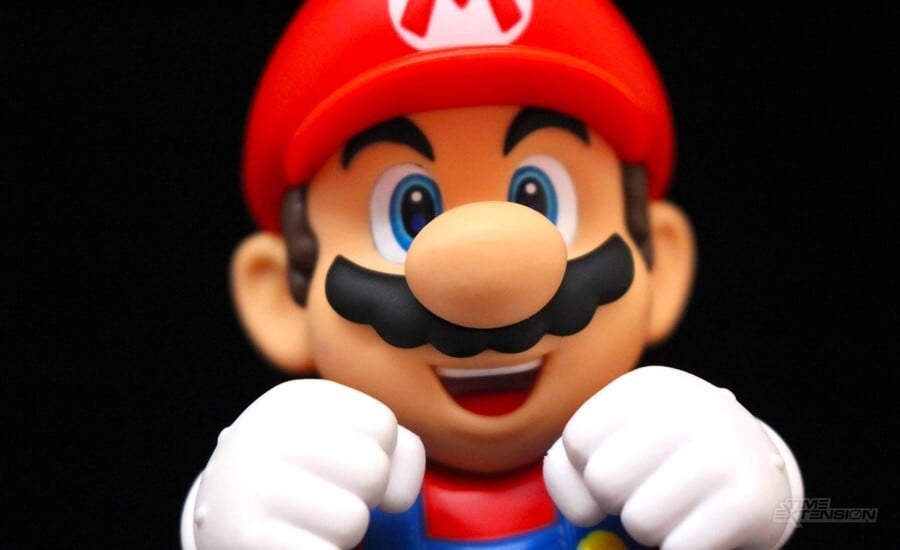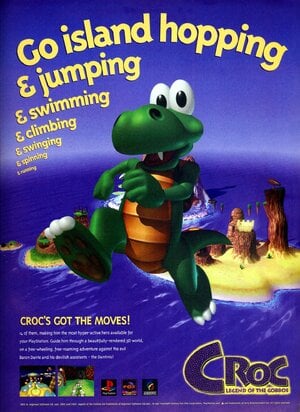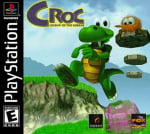
Nintendo has a long history – much of it pre-dating its involvement with video games – and is responsible for some of the most famous franchises in the realm of interactive entertainment.
For much of the '80s and '90s, even the word 'Nintendo' was synonymous with 'video game' for many people; in Japan, the Famicom was in almost 40% of households, while in North America, the NES (its Western counterpart) was in 30% of homes – a level of penetration that even outranked personal computers at the time.

While the company's fortunes have waxed and waned (and waxed again) since then, Nintendo remains a strong presence in the global video game market – a fact which was recently underlined by the astonishing commercial success of the Nintendo Switch and the amazing cultural popularity of related products, such as the all-conquering Super Mario Movie, which is now the second biggest animated feature film of all time.
Taking all of this into account, it's perhaps understandable that Nintendo's mindshare in the world of video games is enormous – but some people feel this bias is resulting in the industry's history being retrospectively altered or distorted.
The tweet that triggered this particular talking point actually comes from 2021, and relates to an interesting comparison between one of the most popular N64 games and Croc, a 1997 PlayStation 3D platformer which is quite often dismissed when talking about the history of the genre.
Amazingly, both Croc and Banjo-Kazooie sold around the same number of copies, yet there are arguably far fewer people talking about Argonaut's character these days.
This could be for several reasons, of course; Croc, despite being an old-school favourite with Sony fans, perhaps isn't as good as Rare's title. It's also worth noting that selling three million copies on the PlayStation (total hardware sales: 102.49 million) isn't quite as grand an achievement as shifting the same number of units on the N64 (32.93 million consoles sold). Finally, it's worth remembering that Croc 2 only managed to sell half a million units, while Banjo-Tooie shifted 3 million – which might suggest that Argonaut's series ran out of steam much faster, while Rare's retained its audience.
More recently (and this is why we've updated this feature since its initial publication in June 2023), N64 classic Super Mario 64 has become a focal point for those debating the rise of 3D in video gaming.
A post on Twitter (which has since been set to private, presumably due to the amount of negativity directed towards it) stated that Mario 64 was overrated and a long way off being the starting point for 3D in gaming. As you can imagine, this caused quite a commotion on social media, with many people coming out to defend Mario's first foray into the world of three dimensions – but there were others who pointed out that, again, this is a clear case of Nintendo's influence being overstated; for example, its erstwhile rival, Sega, had released Virtua Racing, Virtua Fighter, Virtua Fighter 2, Daytona USA and SEGA Rally before Mario arrived in 1996 – and also had the Saturn console in plenty of homes before the N64 arrived. Likewise, Sony's PS1 was already on its way to becoming the most popular home console of the generation, and it had spearheaded its assault with titles like Ridge Racer, Jumping Flash and Tekken.
Super Mario 64 wasn't Nintendo's first 3D game – we had X on the Game Boy, as well as Star Fox and Stunt Race FX – all titles that, notably, were made with assistance from Argonaut employees. The pathfinding that took place in these games will have contributed to the development of Super Mario 64, but this knowledge, in turn, owed a lot to the 3D games of the '80s, such as Elite, Stunt Car Racer and Starglider (the latter of which was coded by Argonaut founder Jez San, who also claims that Croc began life as a game starring Yoshi and that Nintendo took inspiration from it for Mario 64). 3D gaming existed long before Nintendo took notice of it, even if Super Mario 64 deserves to be credited with taking it to another level and combining it with smooth analogue control.
All of this highlights an interesting question: does the world of video games really have a "Nintendo" problem when looking back on its history? Nintendo is responsible for some of the best video games money can buy, so it's understandable that, when looking back on the industry's achievements over the past few decades, games like Super Mario, Zelda, Metroid, Fire Emblem and Pokémon get a lot of attention. But could it be argued that this attention is disproportionate to the actual impact some of these games have had on gaming?

And is this being amplified by the fact that so many modern-day YouTube historians are simply regurgitating the memories and history they've read on the web – stuff that's likely penned by super-passionate fans of Nintendo? North America has long been something of a Nintendo stronghold, despite the rise of Sony and Microsoft, and given that so many websites and YouTube channels are American, it's perhaps unsurprising that Nintendo's role in gaming's evolution gets such a lot of attention – a similar example of this is the 1983 video game crash, the impact of which was mainly limited to North America but is treated by many as a global event.
Of course, this theory could equally apply to the PlayStation or Xbox generation; both Sony and Microsoft have enjoyed periods of extraordinary commercial and critical success, creating legions of fans who will only ever view history through a blue or green lens. It's just that Nintendo's longevity and the near-universal appeal of its IP ensure that it's constantly bubbling near the top of any discourse surrounding video gaming, and this is potentially why titles like Croc – which has fallen out of memory for many people and therefore isn't being picked up by modern-day YouTube historians.
Why is this even a problem? Well, we're not saying that Croc should be celebrated in the same breath as Banjo, Mario or Sonic, but you could argue that, as a character, he has a part to play in the development and growth of the industry as a whole. Moving away from Argonaut's game for a second, you could argue that the amount of attention the current 'big three' get online is overshadowing the combined impact of the many other publishers, developers and hardware manufacturers who have been part of this sector for the past forty-odd years, perhaps even longer.
Or maybe there is no issue, as Nintendo is such a massive force in gaming it deserves all the attention it gets.
What's your take on this topic? Vote in the poll below, and don't forget to leave a comment.
Does Video Game History Have A "Nintendo" Problem? (1,721 votes)
- Yes
- No
- I don't have an opinion either way


